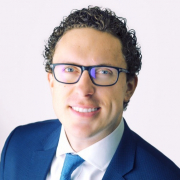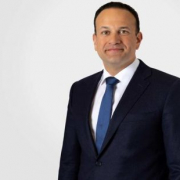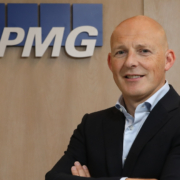“Be curious and ask a ton of questions. Intellectual curiosity is undervalued.”
Pictured: Brian Stafford, CEO and President of Diligent.
Brian Stafford is President and CEO of Diligent, a modern governance company using comprehensive governance software with tools to improve and simplify modern day governance. Diligent’s headquarters is based in New York in the United States.
What are your main priorities and goals in your role?
At Diligent, we have a bold vision to empower every leader with the right information to build successful, equitable, and sustainable organisations. To execute on this vision, we built the only platform that offers tools to support an organisation through its entire governance, risk and compliance (GRC) journey.
As CEO, my main priorities are ensuring our team is aligned around the vision about and has the tools they need to move our vision forward. Also continually listening to our customers, understanding the challenges they’re facing in today’s business and risk landscape and pursuing product innovation to continuously provide value to our customers.
What are your biggest challenges as CEO?
At Diligent we are building something new that’s never been done before. This is simultaneously exciting and challenging — there’s no roadmap to follow, we are blazing a trail and creating a platform to support a new era of leadership.
The pace at which organisations today are expected to innovate and disrupt has accelerated. Whether it’s digital transformation, adapting to market changes or reducing waste and costs, companies are expected to do more with less resources.
How do you keep your team/staff motivated?
One of the greatest motivators working at Diligent is the opportunity for impact. We have an exciting opportunity to impact how leaders change the world, and our employee base is made up of agents of positive change driven by a shared vision of the future of business. I always encourage our team to think big, learn relentlessly and break barriers.
What are the challenges facing the industry going forward?
The pace at which organisations today are expected to innovate and disrupt has accelerated. Whether it’s digital transformation, adapting to market changes or reducing waste and costs, companies are expected to do more with less resources. This has shifted the types of questions and requests we get from customers and challenged us to innovate and adapt just as quickly to meet their evolving needs.
What new trends are emerging in your industry and how has the COVID-19 crisis affected your business/sector?
The pandemic had a profound impact on how businesses approach risk management and strategic planning. No one could have predicted the magnitude of the COVID-19 crisis, however, one outcome is that it has forced directors to focus on how business risks are evolving in a world that changes pace at the blink of an eye. Directors want insights into areas of risk across the business, and the work of GRC professionals has become more valued and important.
One emerging trend we are seeing more of is businesses looking to software to measure their climate impact. New legislation plays a material role in this, such as the upcoming SEC climate disclosures. There is also a push from employees who want to work for more sustainable companies, as well as investors and customers. The climate targets a company sets will depend on a variety of things including industry, customer base and shareholders, but across the board, companies are needing to measure carbon emissions and provide transparency to make informed decisions on climate goals.
One emerging trend we are seeing more of is businesses looking to software to measure their climate impact. New legislation plays a material role in this, such as the upcoming SEC climate disclosures.
Are there any major changes you would like to see in your sector?
Historically, the evaluation of an organisation’s performance has focused on financial metrics. In some cases, that’s because financial data is easy to quantify. In others, it’s because sharing financial data makes it simple to compare the performance of different companies, organizations, and industries. There’s also a strong pre-existing understanding of how finances relate to the strength of the company, and an inherent bias towards doing what is simple, clear, and already well-understood.
The reality is that relying solely on financial metrics in assessing the well-being, potential, and performance of an organization misses an increasingly important constellation of factors that contribute to a company’s long-term success. Now, we are starting to see the measurement of an organization’s performance expand to include non-financial metrics like climate, cybersecurity, diversity, ESG more broadly, stakeholder engagement, talent and compliance, to not only capture the current health of a business but also how it got there, where it is going, and how well it meets the non-financial goals of its stakeholders.
This dialogue has started but I’d like it to see it more widely adopted to create consistent language, reporting, disclosures and comparisons across businesses.
As an employer are you finding any skill gaps in the market?
In general as organisations embrace technology and automation to drive growth, you’re going to see a bit of a skills gap in the market. To be successful, I think it’s up to companies to implement programs that address any skill gaps and give talent the tools, knowledge and resources to be successful in their roles.
Last year we launched Diligent Academy, a training program with the goal of diversifying access to the tech industry with a focus on under-represented job seekers, while adding skilled talent to our commercial team. As part of this program, we partnered with tech sales training school SV Academy to provide free, virtual training to 100 under-represented Baltimore-area residents. Around 20 graduates from the first cohort were matched with entry-level commercial roles at Diligent last year, and we expect to hire another 20 graduates this year. Subsequently, we will look to replicate the Academy model with other international partners.
What’s the best advice you’ve been given, or would give, in business?
The best advice I would give is to be curious and ask a ton of questions. Intellectual curiosity is undervalued. Questioning and challenging the world around you makes organisations better and makes the world better.
The best advice I would give is to be curious and ask a ton of questions. Intellectual curiosity is undervalued. Questioning and challenging the world around you makes organisations better and makes the world better.
What have been your highlights in business over the past year?
It’s been an exciting year of product innovation and growth. Just this week, we launched Board Reporting for ESG, a first-of-its-kind board dashboard that combines performance data with market intelligence to give a comprehensive view of an organisation’s climate posture.
At Diligent we serve over 700,000 board members and leaders, and we are hearing from them that they are overwhelmed with too much data and not enough insights. So, we’re excited to be launching tools that equip practitioners with the right information to share and allows executives and board members to spend less time trying to decipher complex information and more time focused on the right insights to drive the organisation forward.
What’s next for your company?
We have exciting product launches coming that will help turn data and insights into measurable and actionable outcomes. We are also looking at AI to drive new innovation and productivity across our business. Finally, we are hosting our fifth annual Modern Governance Summit, the biggest GRC event of the year, from September 13 – 15. So I’m excited to connect with our customers there and talk about product innovations that support them in overcoming today’s GRC challenges.









